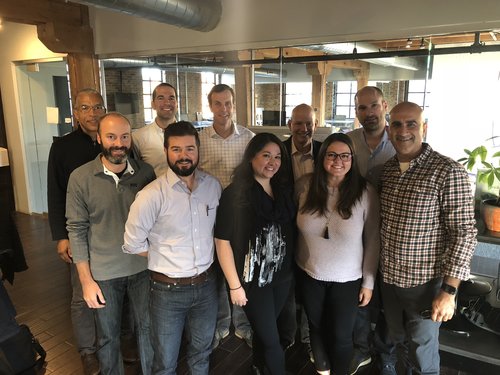At this time of year, many of us create the time for or find ourselves doing some reflecting. We take stock of what we accomplished in the past year, what we would have done differently, and why. We also think about what we want to accomplish in the new year, and what it’s going to take.
All along, it’s likely that we felt multiple emotions: joy, sadness, surprise, and maybe even some love and anger. We draw conclusions about how well we and our company performed, and maybe even added some judgmental statements to describe it all.
Unbeknownst to us, it’s an exercise in self-awareness: exploring what we are feeling and why, getting a sense of our strengths and limits, and taking account of our self-image as both an individual and a company.
Self-awareness is the foundation of our emotional intelligence, the first of four sets of building blocks. Without our ability to continuously develop self-awareness, we struggle to make progress with the remaining three sets of building blocks: self-management, social awareness, and relationship management. In other words, if we don’t work on our self-awareness on a regular basis, the other three become harder and harder to develop, challenging our ability to improve our emotional intelligence, and our leadership abilities.
The good news is that, because of the calendar turning, it is fairly easy to engage in this type of self-awareness. We can pass the test.
Now comes the hard part. What we do with all that reflecting is self-management, the second set of building blocks for emotional intelligence. Our self-management abilities consist of our achievement orientation and initiative, keeping emotions and impulses in check, and adapting to changing demands and ambiguity.
This is the real test that we’re about to take in the coming months: how well we execute on our plans and make progress towards the priorities, goals, and intentions we’ve set for the new year, in addition to how well we respond to that progress.
Ready? You may begin the test.


